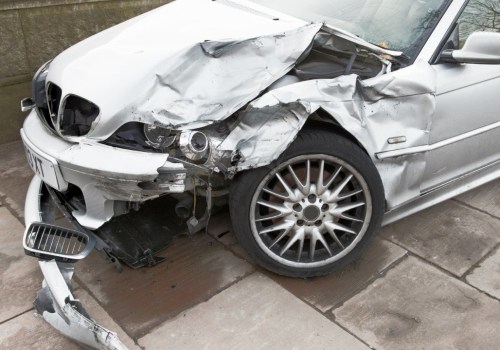Driving without car insurance is illegal in almost every state. The four types of insurance that most financial experts recommend are life insurance, health insurance, auto insurance and long-term disability insurance. Having insurance coverage is important because it can provide people with financial security and help mitigate losses. It also offers a sense of security for the policyholder and their family, knowing that financial losses can be protected.
The most common types of insurance coverage include life, health, auto and homeowners insurance. Liability insurance covers you in the event that you are in a covered car accident and the accident is determined to be the result of your actions. Liability insurance will cover the cost of repairing any property damaged by an accident, as well as the medical bills for the resulting injuries. Most states have a minimum requirement on the amount of liability insurance coverage drivers must have.
However, if you can afford it, it's generally a good idea to have liability insurance that exceeds your state's minimum liability coverage requirement, as it will provide you with additional protection should you be determined to be at fault for an accident, since you are responsible for any claim that Exceed your coverage upper limit. You don't want to run the risk of having to pay a large amount of money because your policy limit has been exceeded. If there's a covered accident, collision coverage will pay for your car repairs. If your car is totaled (when the repair cost exceeds the value of the vehicle) in an accident, collision coverage will pay the value of your car.
And if something happens to your car that isn't related to a covered accident (weather damage, you hit a deer, your car is stolen), will your insurance company cover the loss? Liability insurance and collision coverage cover accidents, but not these situations. These situations are covered by comprehensive coverage (other than collision). While state laws require all drivers to be insured, this is unfortunately not always the case. Another problem that may arise is that, while a driver may have liability insurance, many states have relatively low minimum coverage requirements that may not be sufficient to cover all the expenses of an accident.
So, if someone is legally responsible for damages related to an accident, they won't receive any payments if they don't have coverage, or they'll receive less than they need to cover the cost of the damages if their damages exceed the coverage amount. This is the type of situation where protection against uninsured or underinsured drivers would help with expenses. Health insurance covers necessary medical costs, from doctor appointments to surgeries. In addition to coverage for illnesses and injuries, health insurance covers preventive care, such as monthly checkups and tests.
Arguably, health insurance is the most important type of insurance. All adults must have health insurance. Children are usually covered by one of their parents' plans. Always be on the lookout for car insurance discounts when looking for a plan.
There are many discounts you can choose to lower your monthly bill, including discounts for safe drivers, married drivers, and multiple cars. If you don't have a vehicle or a driver's license, you won't need car insurance. Liability coverage is mandatory in most U.S. states.
UU. as a legal requirement for driving a car. Liability insurance can help cover damage for injuries and damage to other people's property for which you are legally responsible as a result of a covered accident. Collision insurance can cover damage to your car after an accident involving another vehicle and can help repair or replace a covered vehicle.
Comprehensive insurance can provide an additional level of coverage in the event of an accident involving another vehicle. It can help pay for damage to your car due to incidents other than collisions, such as vandalism, certain weather events, and accidents involving animals. Uninsured motorist insurance can protect you and your car from uninsured drivers and hit and run accidents. This coverage is often accompanied by insurance for underinsured drivers.
Many drivers choose to have the minimum liability coverage to save money, but this may not provide enough coverage. Underinsured motorist insurance can protect you in the event of an accident involving a driver whose insurance is not sufficient to cover the costs. Life insurance can also help you pay off any of your debts, such as mortgages and loans, or daily expenses. Depending on the number of plans offered in your area, you can find plans for all or any of these types at each metal level: Bronze, Silver, Gold and Platinum.
More than 60% obtained their coverage through an employer or in the private insurance marketplace, while the rest was covered by government-subsidized programs, including Medicare and Medicaid, veterans benefit programs, and the federal marketplace established under the Affordable Care Act. Life insurance coverage provides beneficiaries with a sum of money upon the death of the insured person. Selecting the right type and amount of insurance is based on your specific situation, such as children, age, lifestyle, and work benefits. If you're single and single, chances are you don't need life insurance, although there are other important types of insurance for singles.
However, if your pet is an ingrained part of your family and you're willing to pay high veterinary costs to treat serious illnesses and injuries, pet insurance could be worth it. If you die after the expiration date of your life insurance coverage, your beneficiaries will not receive their death benefit. Anti-theft and tracking devices in cars can make this coverage a little more affordable, but carrying this type of insurance can be expensive and may not be necessary, especially if your car is easily replaceable. Employer coverage is often the best option, but if it's not available, get quotes from multiple providers, as many offer discounts if you buy more than one type of coverage.
If your income is moderate but doesn't extend to insurance coverage, you may be eligible for subsidized coverage under the federal Affordable Care Act. . .



